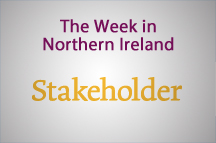 Before the ballot boxes were opened Northern Ireland’s political parties were setting out their demands should their support be required to form a government. With the ballots now counted these preconditions are now moot.
Before the ballot boxes were opened Northern Ireland’s political parties were setting out their demands should their support be required to form a government. With the ballots now counted these preconditions are now moot.
While strength of mandates was a key argument deployed throughout the election by all the parties, the surprising feature of this campaign was the emergence of equal marriage as an issue and resulted in a Ministerial resignation.
The results in Northern Ireland, whilst not as dramatic as Britain, did offer some surprising results. The Ulster Unionist Party can be pleased with their spoils from this election, with a gain from the DUP in South Antrim. Their pact with the DUP also secured a seat for the UUP in Fermanagh South Tyrone, a seat that Sinn Fein won by just four votes in the last Westminster election. Not a bad result for a party which appeared to be at the wrong end of the electoral pact deal.
The DUP is returning the same number of MPs that it held before the election, albeit in different locations. The unionist pact ensured a predicted DUP gain in East Belfast over the Alliance Party’s Naomi Long although veteran William McCrea was a casualty of the election. With the Conservative’s securing a slim working majority, the DUP will not be the power brokers that they had hoped to be before the election but their presence will bring the Prime Minister additional comfort.
.jpg)
The SDLP comfortably held seats in Foyle, South Down and managed to retain South Belfast, although with a reduced majority. An increased share of the vote in Newry and Armagh can give the party hope for an additional seat in next year’s Assembly elections. However whilst Sinn Fein enjoyed a predictable win in West Belfast, the vote share (19.2%) achieved by the People Before Profit candidate illustrates that there is a clear appetite to vote against Sinn Fein that the SDLP seems unable to capitalise on.
The election did not go as anticipated for Sinn Fein who were only able to retain four out of their previous five seats. The unionist pact in North Belfast meant that they were unable to secure their target seat in this constituency, with the DUP’s Nigel Dodds winning comfortably. In South Belfast their candidate was unable to unseat the SDLP’s Alasdair McDonnell. The Northern Ireland election was marked by increased polarisation between the two communities and some parties complained of dirty tricks being attempted on a widespread scale.
As the Northern Ireland parties take/don’t take their seats in Westminster, their ability to barter no longer exists with a Conservative majority. The balance of power argument is gone and with it any hopes of an improved economic settlement for Northern Ireland.
Overall the Ulster Unionist leader, Mike Nesbitt is like the cat who got the cream, the SDLP leader will be relieved just to have survived and Sinn Fein have now shown some electoral vulnerability. First Minister, Peter Robinson would have liked nine or ten seats but re-gaining his home turf is a good consolation prize. The minority parties will have to take stock of the fate of the Lib-Dems in the UK and may have to decide that power-sharing with the DUP and Sinn Fein could be damaging to their electoral health.
Going forward it will be interesting to see what the strength of the SNP in Westminster will mean for the Union and for devolution.
There are 18 seats in Northern Ireland. The breakdown of seats by party is: DUP 8, Sinn Fein 4, SDLP 3, UUP 2 seats and Independent 1 seat.












